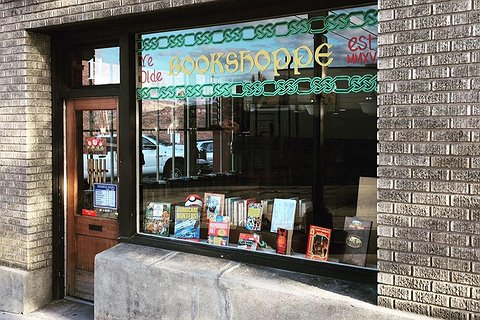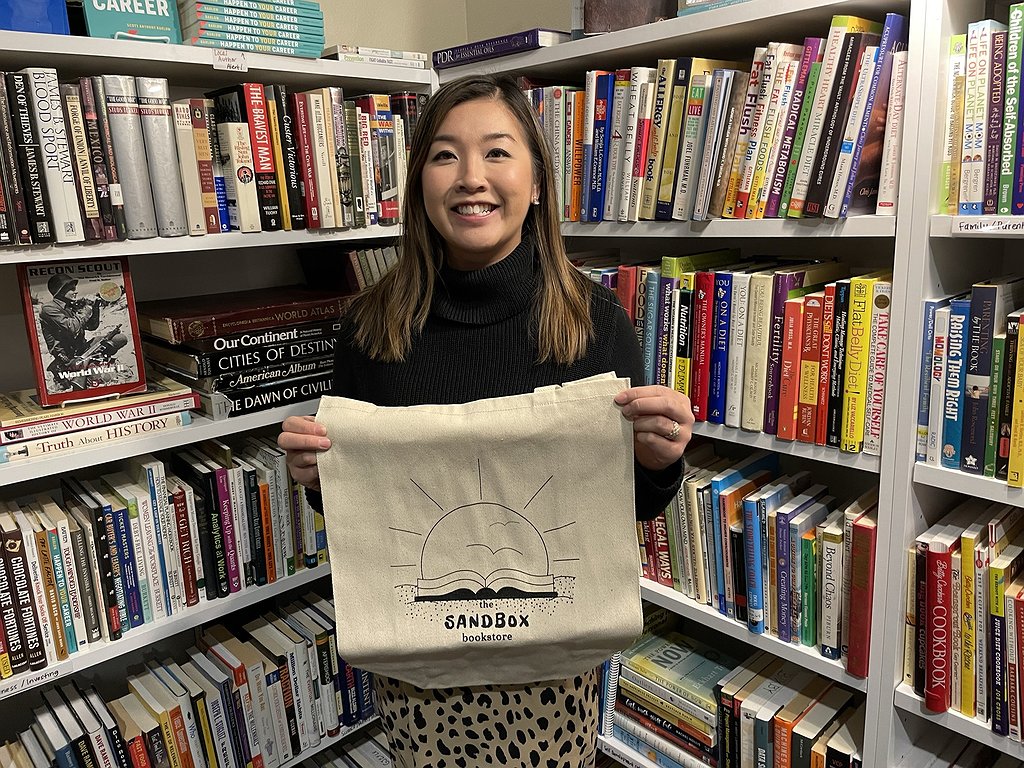Small bookstore owners reflect on doing business in a small town
GABRIEL DAVIS | Hagadone News Network | UPDATED 1 year, 10 months AGO
Gabriel Davis is a resident of Othello who enjoys the connections with his sources. Davis is a graduate of Northwest Nazarene University where he studied English and creative writing. During his free time, he enjoys reading, TV, movies and games – anything with a good story, though he has a preference for science fiction and crime. He covers the communities on the south end of Grant County and in Adams County. | February 9, 2024 1:00 AM
MOSES LAKE — Moses Lake’s Sandbox Bookstore owner Mai Houvener and Wenatchee’s Ye Olde Bookshoppe owner AnaMaree Ordway discussed what it’s like to operate a bookstore in a smaller town while competing with larger retailers.
“I am not equipped yet to be online,” Houvener said. “It's hard. To do online means that you have to have, really, another person to package the books, ship them out, and on top of that hold the books in the shelf and not let anyone else buy it in the store. In a small store it can be overwhelming.”
Houvener bought the store two years ago after the previous owners could not keep the shop afloat following the COVID-19 pandemic.
“But it took us the better part of the year to open up,” Houvener said. “We bought it in January and didn't open up until July, so it took a long time.”
Houvener did not have any bookselling experience prior to buying the store.
“It’s doing okay. We're gaining traction, finally,” she said. “(People) just got used to being homebodies and just became very comfortable doing everything at home, and now people are venturing out again …A majority of my customers, I feel like, are people who just moved here or transports looking for a place, looking for a bookstore. So they find me on social media and on the website.”
Houvener said retailers like Amazon take a loss on their book sales but make up the money from other purchases made while customers browse the site. She said she began stocking toys and games to diversify what products she offered.
The difficulty with inventory is understanding customers’ spending habits and buying smaller amounts of books from wholesalers, who charge lower prices for bulk orders, Houvener said.
Members of the community support the store, she said, despite being able to find more competitive prices online.
“They're definitely people who want to support a small business who come in. Instead of going to Amazon, they're coming to us to buy,” she said. “We do a 10% off discount on all new books, which cuts into our revenue, but same time it’s like, ‘how do I get these people in the door first?’”
Many small businesses don’t have many staff members. Ordway said she has to wear many hats, and Houvener said she is often stretched thin performing different roles at the store.
“A lot of us are single-person run. Luckily, I have two part-timers,” Houvener said. “I still don’t pay myself, so everything I do goes back into the business, just to help us survive.”
A benefit of being a smaller bookstore, particularly a brick and mortar store, is providing a community space.
“I'm hoping to grow into book clubs and more community events like chess club and Magic the Gathering tournaments, because I feel a sense of community,” Houvener said. “The bookstore is a community spot and I want to offer those services. It's missing. There's so many people who want these things, but there's nowhere for them to go.”
Houvener said another benefit is being able to be more personally engaged with the customers and more able to be flexible to meet certain individual’s needs.
Ordway and Houvener talked about being part of online groups of smaller booksellers, and certain associations helping keep those smaller businesses afloat.
“The American Booksellers Association has teamed up with Ingram Publisher (Services),” Ordway said. “There's probably, I think, about 2000 of us now where we all have our own websites, and Ingram fulfills the orders and then we get paid as though you bought them in the store.”
Ye Olde Bookshoppe sells used books in the brick and mortar location and sells new books online, but she said most sales come from in-store purchases.
Ordway said though there used to be several bookstores in Wenatchee, she doesn’t think it would work in today’s economic situation.
“There was a time when there was room for six or seven. I don't think either of us would survive anymore. There's too much reliance on Amazon,” she said. “In here, people will come in and look for a book and I'll point them in the direction because we don't have a computer inventory of new books, and I’m pretty good at saying, ‘if we don't have a used copy, we have new ones on our website.’ And then they'll go, ‘Well, I guess I have to go to Amazon.’”
Another challenge is attempting to market to customers with limited resources compared to a large retailer.
“We've tried every form of advertising there is, and word-of-mouth is the one that (works),” Ordway said. “For a long time, I had a little notebook up here, and I asked, ‘How'd you hear about us?’ and it was always like, ‘My friend, my grandma, my granddaughter.’”
Despite the challenges, Ordway echoed Houvener’s statement on loyal customers of small businesses.
“We do have a lot of very loyal customers who always come in and buy their books here,” Ordway said. “They'll wait for a local author to bring in more copies instead of ordering from Amazon, and share with word-of-mouth. So that always helps.”
Gabriel Davis may be reached at [email protected]. Download the Columbia Basin Herald app on iOS and Android.
ARTICLES BY GABRIEL DAVIS

Work-based learning lets students build their own futures
MOSES LAKE — Work-based learning provides education opportunities for the workforce to receive hands-on training and technical education and prepare themselves to enter various industries. Educators and workforce development professionals from Eastern Washington discussed some the training they offer and the benefits of their programs. Next Generation Zone, an affiliate of WorkSource based in Spokane, provides job training opportunities for youth and young adults ages 16 to 24. Program Coordinator Kate Martin said there are multiple benefits to the program. “One of them is a paid work experience, and that’s where we reach out to area employers who are willing to take a young person and train them,” she said. “This is a short-term learning experience, so it’s typically about 240 hours; sometimes it could be longer or shorter. We’re the actual employer; we cover all of their wages, taxes, the L&I, and the employer just agrees to give them the experience and train them in whatever field it is that they’re wanting to go into.”

Serving schools: ESD superintendents reflect on operations, priorities
MOSES LAKE — Educational service districts are government-mandated agencies put in place to provide services to school districts across the state. ESD Superintendents discussed what they do and their priorities in operating their districts. ESD 105, led by Superintendent Kevin Chase, serves four counties, including Kittitas, Yakima and portions of Klickitat and Grant counties and provides support for 25 school districts – including Royal School District and Wahluke School District – and more than 66,000 students. “We help them collaborate with each other as well or collaborate with other partners,” Chase said. “(It’s) a lot of advocacy work, either regionally or across the state, or even federally, working on different issues that impact our education. And we provide very specialized services in certain situations in order to meet the needs of our students in our region and of our school districts.”

Columbia Basin Project making headway through Odessa Groundwater program
CASHMERE — The Columbia Basin Project is making gradual progress toward completion with particularly significant accomplishments for the Odessa Groundwater Replacement Program in the last six months or so, according to Columbia Basin Development League Executive Director Sara Higgins. “When we’re dealing with a project of this size, advancement is kind of like watching paint dry, but yes, there have been (developments),” she said. “There are a lot of exciting things happening right now.” There are more than 300 miles of main canals, about 2,000 miles of lateral canals and 3,500 miles of drains and wasteways in the irrigation project, according to the U.S. Bureau of Reclamation website. The CBDL advocates for the operation of those waterways and for the project to continue “build-out.”







